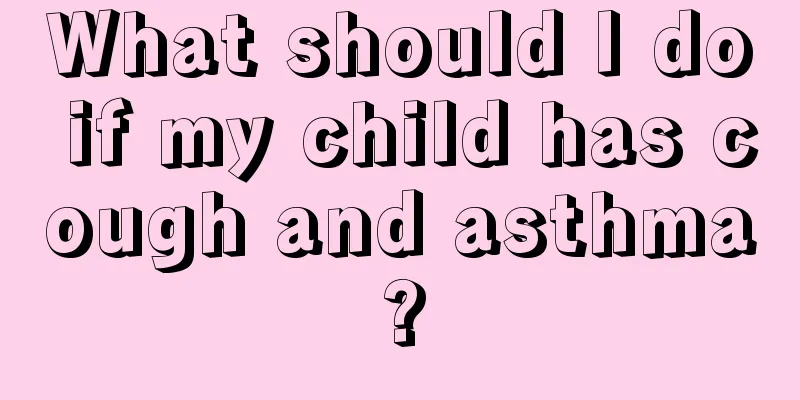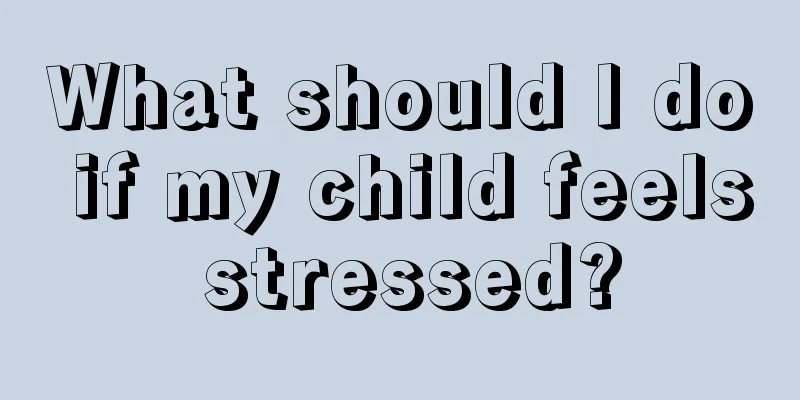Why does my baby like to sweat?

|
We all know that the health of every child is the most worrying issue for parents. However, in the process of taking care of the baby, many parents will find that the baby is particularly willing to sweat. They often don’t know whether this is a normal symptom. Sometimes many parents are afraid that the baby’s sweating will lead to calcium loss. Once the body lacks calcium, it will be particularly detrimental to the baby’s healthy growth. It is also easy to cause bow legs or rickets. Let’s understand why babies like to sweat. Why does my baby like to sweat? Babies sweat too much due to certain diseases, which manifests as sweating a lot when they are quiet or after falling asleep at night. The sweat can wet the pillow and clothes, which is called "pathological sweating." Such as active rickets in infants and young children, active tuberculosis in children, hypoglycemia in children, excessive dose of antipyretics and mental factors, such as excessive excitement and fear. Some babies have endocrine diseases (such as hyperthyroidism, etc.), which can also cause pathological sweating. In addition to excessive sweating, each disease also has many other disease manifestations. Parents need to take their baby to the hospital for further examinations. (1) Active rickets: Infants under one year old sweat a lot. If they lack outdoor activities and sunlight, and do not add cod liver oil and calcium powder in time, parents should observe whether their babies have other symptoms of rickets in addition to sweating, such as crying at night, crying and shaking their heads on the pillow while sleeping, resulting in hair loss circles on the back of the head (also known as occipital baldness), ping-pong head (the bone in the occipital bone becomes soft and feels like touching a ping-pong ball), square skull (the forehead is protruding and the head is shaped like a square box), and a large anterior fontanelle that closes late. Parents should take their baby to the hospital for examination by a doctor to make a clear diagnosis. (2) Children with active tuberculosis often sweat a lot not only in the first half of the night, but also in the second half of the night before dawn, which is called "night sweats." At the same time, there are poor appetite, low fever in the afternoon (some have high fever), flushed face, weight loss, and some have cough, enlarged liver and spleen, swollen lymph nodes and other symptoms. There is often a history of contact with tuberculosis, and the elderly, parents or nannies in the family suffer from tuberculosis. (3) Hypoglycemia often occurs in the hot summer when babies sweat a lot, refuse to eat at night, and feel listless when waking up in the morning. The children show symptoms of sadness and restlessness, pale complexion, cold sweats, even profuse sweating, and cold limbs. (4) Pediatric endocrine diseases (this type of disease causing excessive sweating is relatively rare). For example, hyperthyroidism is more common in school-age children, mostly girls. It may manifest as excessive sweating, irritability, increased appetite without weight gain, panic, heart palpitations, and even bulging eyes. Babies with obesity also sweat easily, and they sweat a lot when they move or walk. (5) Other acute and chronic infectious diseases in children accompanied by other clinical manifestations: such as typhoid fever, sepsis, rheumatoid disease, connective tissue disease, lupus erythematosus or blood disease. The above is an introduction to why babies like to sweat. After understanding it, we know that there are many reasons why babies like to sweat. When such symptoms appear again, parents should not always blindly think that the baby is caused by calcium deficiency. They must go to the hospital for examination and then make timely adjustments according to the cause of the disease. In addition, they should also pay attention to adjusting the baby's diet and pay more attention to the nutritional balance of the baby's diet. |
<<: Why do babies occasionally twitch?
>>: What to do if your child has trouble breathing while sleeping
Recommend
Does hand, foot and mouth disease itch in children?
Although hand, foot and mouth disease is not that...
What's a good breakfast for kids? 7 Foods Rich in Nutrients
Children's health has always been the top con...
What are the early symptoms of heart disease in children?
For parents, the health of their baby after birth...
What should I do if my child has fluid accumulation in his testicles?
The symptom of fluid accumulation in children'...
Will the child start to grow taller?
The stage of children's growth and developmen...
What are the symptoms of antral gastritis in children?
Speaking of antral gastritis, many friends think ...
What to do if your baby has a fever in spring
The climate begins to gradually warm up in spring...
What causes hair loss in children? How to prevent hair loss
Every adult will experience hair loss to a greate...
Can children eat grasshoppers?
Grasshopper refers to cicada pupa, which is a nam...
Is it necessary to give children the chickenpox vaccine?
Varicella is a relatively common infectious disea...
What causes pain above the child's belly button?
It is very common for children to have pain above...
What to do if your child has a headache and vomits
Children are always the center of every family, s...
Is it serious if a child has occult blood?
Children's occult blood 10 is a result that m...
Why does a 3-year-old baby vomit after eating?
If a 3-year-old baby vomits after eating, parents...
Diagnosis and treatment of chlamydia infection in babies
If a baby is infected with chlamydia, it will ser...









